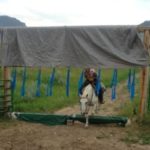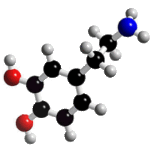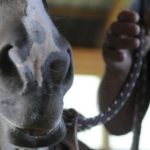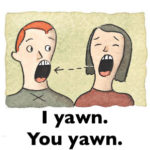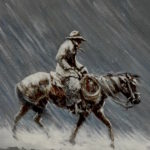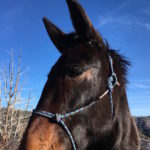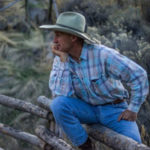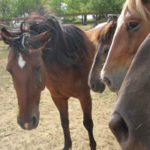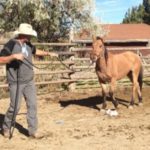Another Neurochemical to Know: Serotonin
Neuroplasticity is a healthy brain’s ability to form and reform synaptic connections created through gazillions of moments. Every being – from a lab mouse to a horse to a human – is unique because of these moments and subsequent memories They are experiences stored and […]
Read more→Details and Warnings on Dopamine
For years, horse owners and riders have gravitated to the black-and-white straightforwardness of the dopamine response. Licking, chewing, and associated manifestations of this feel-good neurochemical are simple, visible indices of the horse’s state of mind. But, as with everything, there are finer points and nuance […]
Read more→Feel, Our Brainy Explanation
Years ago, I defined Feel on BestHorsePractices as an intense awareness of action and reaction. Feel is knowing how your thoughts, behaviors, and movements impact your horse. It’s an ability to anticipate and influence your horses’ actions and behaviors. But what does that look like […]
Read more→Peters reflects on Mirror Neurons
Editor’s Note: Dr. Steve Peters, 2017 and 2018 presenter at the Best Horse Practices Summit, received an inquiry recently about mirror neurons. These neurons have been the object of study, confusion, and wild extrapolation in recent years. Here’s the question and reply: Dear Dr. Peters, […]
Read more→Your Horse’s Internal Mapping System, Part II
Read Part I In Evidence-Based Horsemanship, Martin Black describes a daunting scenario: One night, I was riding in the dark and two feet of snow. It was overcast, so there was no moon or starlight. Not even the silhouette of the horse’s head could […]
Read more→Your Horse’s Internal Mapping System
Part One of a two-part feature: I’m one to celebrate unfortunate events with a positive attitude. So, let me recount a not-too-proud moment with my mule, Jolene: We headed out on what quickly became a treacherous trek, full of bushwhacking and precipitous ups and downs. […]
Read more→Attention: Key to Your Horse’s Learning
Sometimes improving our horsemanship – a pursuit dominated by the almighty and intangible “feel” – can be like trying to capture dandelion seeds in the wind or bottle fog. How do we effectively translate what we read or watch cerebrally into our daily interactions with […]
Read more→What Is Optimal Learning and How Do We Nurture It?
A few years ago, Dr. Steve Peters, a neuropsychologist and director of the Memory Clinic at Utah’s Intermountain Healthcare, was invited to talk to a group of leaders at Cisco Systems, the technology company. The group wanted to know how best to teach Cisco’s complicated […]
Read more→Pain Measured
Horses don’t speak, but we can ‘hear’ what they’re telling us if we pay attention. That’s what pinned ears, tail swishing, and lip-licking are all about. Problems arise, though, with the our interpretations: one person can ‘hear’ something different than the next. Temple Grandin recognized […]
Read more→The Troubled Horse’s Brain
There’s a reason colt-starting competitions rarely feature rescued horses. It’s the same reason contractors would rather tear down a house instead of restoring it. What’s under the surface can wreak havoc on your wallet, your skills, your patience, and even your equipment and facilities. Troubled […]
Read more→